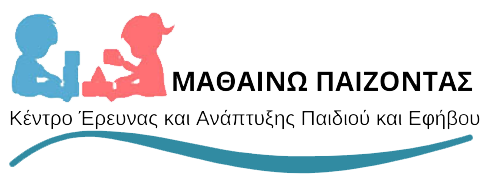Επιστημονικά άρθρα (σε χρονολογική σειρά)

▪ Kalyva, E. (2004). The ‘circle of friends’ as a way to improve communication between children with autism and their peers at school: A preliminary study. Issues in Special Education, 23, 34-43.
▪ Avramidis, E., & Kalyva, E. (2004). Understanding “dyslexia”: Cleaning up a messy construct and developing supportive educational environments. Use of English, 56, 25-47.
▪ Kalyva, E., & Papageorgiou, V. (2004). Psychology students’ knowledge about autism. Good Autism Practice, 5, 61-67.
▪ Kalyva, E., & Avramidis, E. (2005). Improving communication between children with autism and their peers through the ‘circle of friends’. Journal of Applied Research in Intellectual Disabilities, 18, 253-261. (impact factor: 1.385)
▪ Avramidis, E., & Kalyva, E. (2007). The influence of teaching experience and professional developmenton Greek teachers’ attitudes towards inclusion.European Journal of Special Needs Education, 22, 367-389.
▪ Kalyva, E., Georgiadi, M., & Tsakiris, V. (2007). The attitudes of Greek parents of typically developing primary schoolchildren towards inclusion.European Journal of Special Needs Education, 22, 295-305.
▪ Kalyva, E. (2007). Prevalence and influences on self-reported smoking among adolescents with mild learning disabilities, attention deficit hyperactivity disorder and their typically developing peers. Journal of Intellectual Disabilities, 11, 267-279.
▪ Kalyva, E., Gojkovic, D., & Tsakiris, V. (2007). Serbian teachers’ attitudes towards inclusion. International Journal of Special Education, 22, 30-35.
▪ Georgiadi, M., Kourkoutas, E., & Kalyva, E. (2007). Inclusion in Europe. Paper published at the proceedings of the Conference “Primary Education and Contemporary Challenges” in Ioannina, pp. 1236-1243.
▪ Kalyva, E., Karagianni, P., Tziastas, T., Tsontaki, M., & Hatzialexiadou, E. (2007). The effect of teacher burnout on their perceptions regarding their students’ unwanted behaviours. Paper published at the proceedings of the Conference “Primary Education and Contemporary Challenges” in Ioannina, pp. 1279-1283.
▪ Papageorgiou, V., Kalyva, E., Dafoulis, V., & Vostanis, P. (2008). Parent and teacher ratings of hyperactivity and other mental health problems in 6-9 year old Greek children. European Journal of Psychiatry, 22, 200-210. (impact factor: 0.46)
▪ Agaliotis, I., & Kalyva, E. (2008). Nonverbal social interaction skills of children with learning disabilities. Research in Developmental Disabilities, 29, 1-10. (impact factor: 3.405)
▪ Kalyva, E., & Agaliotis, I. (2009). Can social stories enhance the interpersonal conflict resolution skills of children with LD?Research in Developmental Disabilities, 30, 192-202. (impact factor: 3.405)
▪ Kalyva, E. (2009).Comparison of eating attitudes between adolescent girls with and without Asperger syndrome: Daughters' and mothers' reports. Journal of Autism and Developmental Disorders, 39, 480-486. (impact factor: 3.341)
▪ Kalyva, E., & Agaliotis, I. (2009). Can contact affect Greek children's understanding of and attitudes towards peers with physical disabilities? European Journal of Special Needs Education, 24, 213-220.
▪ Kalyva E. 2010. Special Education: What do Greek Teachers Know about Learning Disabilities, Autism, and Attention-Deficit/Hyperactivity Disorder?. In: JH Stone, M Blouin, editors. International Encyclopedia of Rehabilitation. Available online: http://cirrie.buffalo.edu/encyclopedia/en/article/263/
▪ Kalyva, E., Pellizzoni, S., Tavano, A., Iannello, P., & Siegal, M. (2010). Contamination sensitivity in autism, Down syndrome, and typical development. Research in Autism Spectrum Disorders, 4, 43-50. (impact factor: 2.959)
▪ Kalyva, E. (2010). Teachers’ perspectives of the sexuality of children with Autism Spectrum Disorders. Research in Autism Spectrum Disorders, 4, 433-437. (impact factor: 2.959)
▪ Papageorgiou, V., & Kalyva, E. (2010). Self-reported needs and expectations of parents of children with autism spectrum disorders who participate in support groups. Research in Autism Spectrum Disorders, 4, 653-660. (impact factor: 2.959)
▪ Kalyva, E. (2010). Mutlirater congruence on the social skills assessment of children with Asperger Syndrome: Self, mother, father, and teacher Ratings. Journal of Autism and Developmental Disorders, 40, 1202-1208. (impact factor: 3.341)
▪ Kalyva, E., Malakonaki, E., Eiser, C., & Mamoulakis, D. (2011). Health-Related Quality of Life (HRQOL) of children with type 1 diabetes mellitus (T1DM): Self and parental perceptions. Pediatric Diabetes, 12, 34-40. (impact factor: 2.171)
▪ Agaliotis, I., & Kalyva, E. (2011). A survey of Greek general and special education teachers’ perceptions regarding the role of the special needs coordinator: Implications for educational policy on inclusion and teacher education. Teaching and Teacher Education, 27, 543-51. (impact factor: 1.322)
▪ Horwath, J., Kalyva, E., & Spyrou, S. (2012). “I want my experiences to make a difference” promoting participation in policy-making and service development by young people who have experienced violence. Children and Youth Services Review, 34, 155-162. (impact factor: 1.269)
▪ Dafoulis, V., & Kalyva, E. (2012). Factors associated with behavioral problems in children with idiopathic epilepsy. Epilepsy Research, 100, 104-112. (impact factor: 2.302)
▪ Georgiadi, M., Kalyva, E., Kourkoutas, E., & Tsakiris, V. (2012). Young children’s attitudes toward peers with intellectual disabilities: Effect of the type of school. Journal of Applied Research in Intellectual Disabilities, 25, 531-541. (impact factor: 1.385)
▪ Papoutsaki, K., Gena, A., & Kalyva, E. (2013). How do children with mild intellectual disabilities perceive loneliness? Europe’s Journal of Psychology, 9, 51-61.
▪ Kalyva, E. (2013). Stress in Greek primary schoolteachers working under conditions of financial crisis. Europe’s Journal of Psychology, 9, 104-112.
▪ Zafeiriou, D., Ververi, A., Dafoulis, V., Kalyva, E., & Variami, E. (2013). Autism Spectrum Disorders: The quest for genetic syndromes. American Journal of Medical Genetics Part B: Neuropsychiatric Genetics, 122, 327-366. (impact factor: 3.231)
▪ Zafeiriou, D.I,, Ververi, A., Vargiami, E., Kalyva, E., Kyriazi, M., Gioula, G., Gerou, S., Al-Mutawa, H., & Kambouris, M. (2013). Mild phenotype and high-functioning autism in a boy with MECP2 duplication syndrome.European Journal of Paediatric Neurology, 17: Supplement 1, S117-120. (impact factor: 1.93)
▪ Kalyva, E. (2014). Is research on mental health relevant to culture and context? Clinics in Mother and Child Health, 11, 1.
▪ Kalyva, E., Vargiami, E., Kyriazi, M., & Zafeiriou, DI. (2013). Cognitive and executive profile in children with neurofibromatosis type 1. Pediatrics, 76, 414-423.
▪ Kadriu, F., Kelpi, M., & Kalyva, E. (2014). Eating-disordered attitudes in Kosovo school-based populations: Potential risk factors. Procedia-Social and Behavioral Sciences, 114, 382-387.
▪ Kalyva, E., & Melonashi, E. (2014). Reported maternal styles and substance abuse: A cross-sectional study among educated Albanian young adults. Substance Use and Misuse, 49, 654-660. (impact factor: 1.109)
▪ Kalyva, E., & Melonashi, E. (2015). Parental perceptions of health-related quality of life of Albanian children with epilepsy. Health Psychology Research, 3, 22-44.
▪ Kyriazi, M., Vargiami, E., Kalyva, E., & Zafeiriou, D. I. (2015). The influence of motor and vocal tic severity of children’s quality of life. European Journal of Paediatric Neurology, 19, S81..(impact factor: 1.93)
▪ Kalyva, E., Kyriazi, M., Vargiami, E., & Zafeiriou, D.I.(2015). Changes in cognitive performance in children and adolescents with Neurofibromatosis Type 1. European Journal of Paediatric Neurology, 19, S91.
(impact factor: 1.93)
▪ Kalyva, E., Tsakiris, V., Kyriazi, M., Vargiami, E., & Zafeiriou, D. I. (2015). Effective interventions in addressing play deficits in children with autism spectrum disorders. European Journal of Paediatric Neurology, 19, S94. (impact factor: 1.93)
▪ Kalyva, E., Abdul-Rasoul, M., Kehl, D., Barkai, L., & Lukacs, A. (2015). A cross-cultural study on perceived health-related quality of life in children and adolescents with type 1 diabetes mellitus. Journal of Diabetes and Its Complications, doi: 10.1016/j.jdiacomp.2015.12.021 (impact factor: 3.005)
▪ Kalyva, E., Kyriazi, M., Vargiami, E., & Zafeiriou, D. I. (2016). A review of co-occurrence of Autism Spectrum Disorder and Tourette Syndrome. Research in Autism Spectrum Disorders, 4, 653-660. (impact factor: 2.959)

